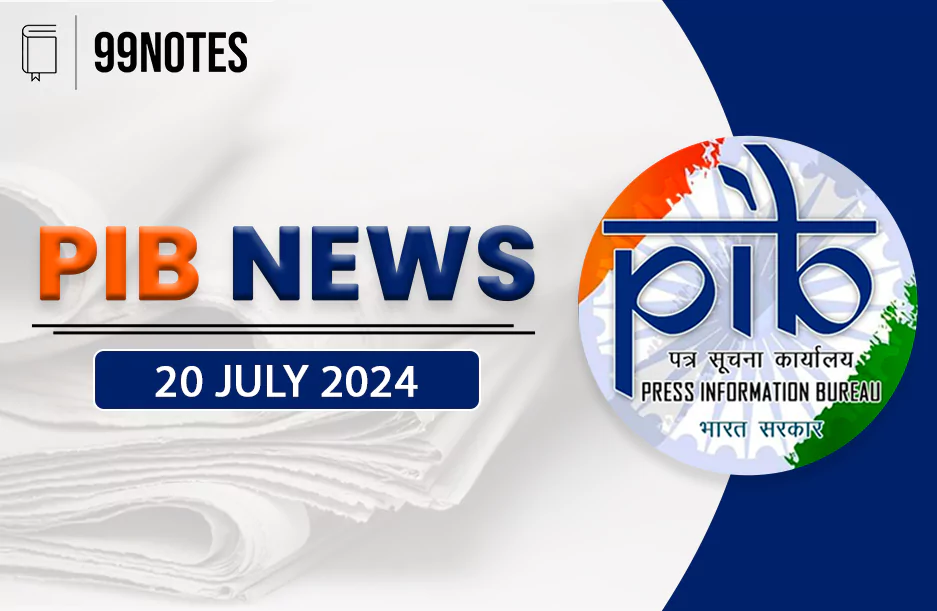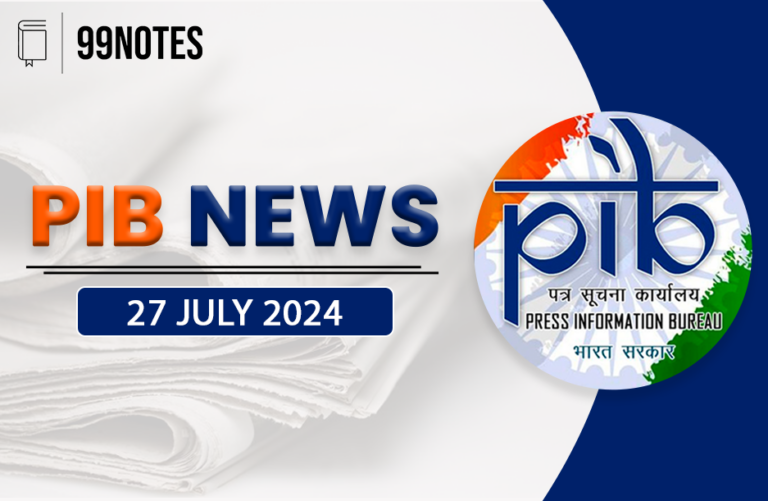20 July 2024 : PIB Summary For UPSC
1. Bureau of Indian Standards signs Memorandum of Understanding with Indian Institute of Science, Bengaluru to promote Standardisation
(Source – https://pib.gov.in/PressReleseDetail.aspx?PRID=2034445 )
| Topic: GS2 – Governance, GS3 – Indian Economy. |
| Context |
|
Analysis of the news:
- The Bureau of Indian Standards (BIS) signed a Memorandum of Understanding (MoU) with the Indian Institute of Science (IISc), Bengaluru, on July 3, 2024, to establish the ‘BIS Standardization Chair Professor’.
- The initiative formalises a strategic collaboration between BIS and IISc to advance standardisation and conformity assessment.
- The BIS Standardization Chair aims to integrate standardisation curricula into academic programs, enhance academic involvement in standardisation activities, and support R&D in the field.
- Key collaborative efforts include:
- Integrating standardisation topics into IISc’s academic programs.
- Involving academia in BIS’s national and international standardisation efforts.
- Providing infrastructure for research and development.
- Co-hosting seminars, workshops, and conferences.
- Sharing knowledge and publishing research findings.
- Exploring Centres of Excellence for standardisation and testing.
- The MoU is part of BIS’s broader strategy to partner with premier institutions like IIT Bombay, IIT Kharagpur, and others to enrich standards formulation and innovation.
- BIS Director General Pramod Kumar Tiwari and IISc Director Prof. Govindan Rangarajan expressed optimism about the partnership’s impact on standards development and technology innovation.
| Importance of standardisation: |
|
What is standardisation?
Importance of standardisation:
|
| Practice Question: Discuss the significance of standardisation in enhancing product quality and market access. How does it contribute to consumer protection, efficiency, and innovation? (150 Words /10 marks) |
2. Raman Research Institute spinoff company’s tunable lasers could lower costs of quantum optics labs
(Source – https://pib.gov.in/PressReleseDetail.aspx?PRID=2034215 )
| Topic: GS3 – Science and Technology |
| Context |
|
Analysis of the news:
- India is set to develop its own multi-channel, tunable laser systems crucial for quantum optics, through nexAtom Research and Instruments, a spin-off from the Raman Research Institute (RRI).
- The technology aims to reduce the high costs of quantum optics labs and has applications in medicine, remote sensing, geo-mapping, and space.
- Raman Research Institute, an autonomous institute of the Department of Science & Technology, has licensed the technology to nexAtom, which will produce these advanced laser systems.
- The tunable lasers, known as External Cavity Diode Lasers (ECDLs), are vital for quantum research and technology labs, addressing needs in quantum communication, metrology, and more.
- nexAtom’s systems are cost-effective, offering integrated packages or sub-systems, reducing the need for additional auxiliary equipment.
- The National Quantum Mission (NQM), a Rs. 6,000 crore initiative, aims to advance quantum technology in India, with RRI contributing to its ecosystem.
- The development includes a provisional Indian patent for a standalone laser system with frequency tunability and precision control.
- nexAtom’s products also include precision time taggers, ultra-fast seed fibre lasers, and Q-switched fibre and diode lasers for diverse applications.
- The venture aims to enhance India’s scientific ecosystem and encourage entrepreneurship in quantum technology. The company’s success will require skilled engineers and PhDs.



